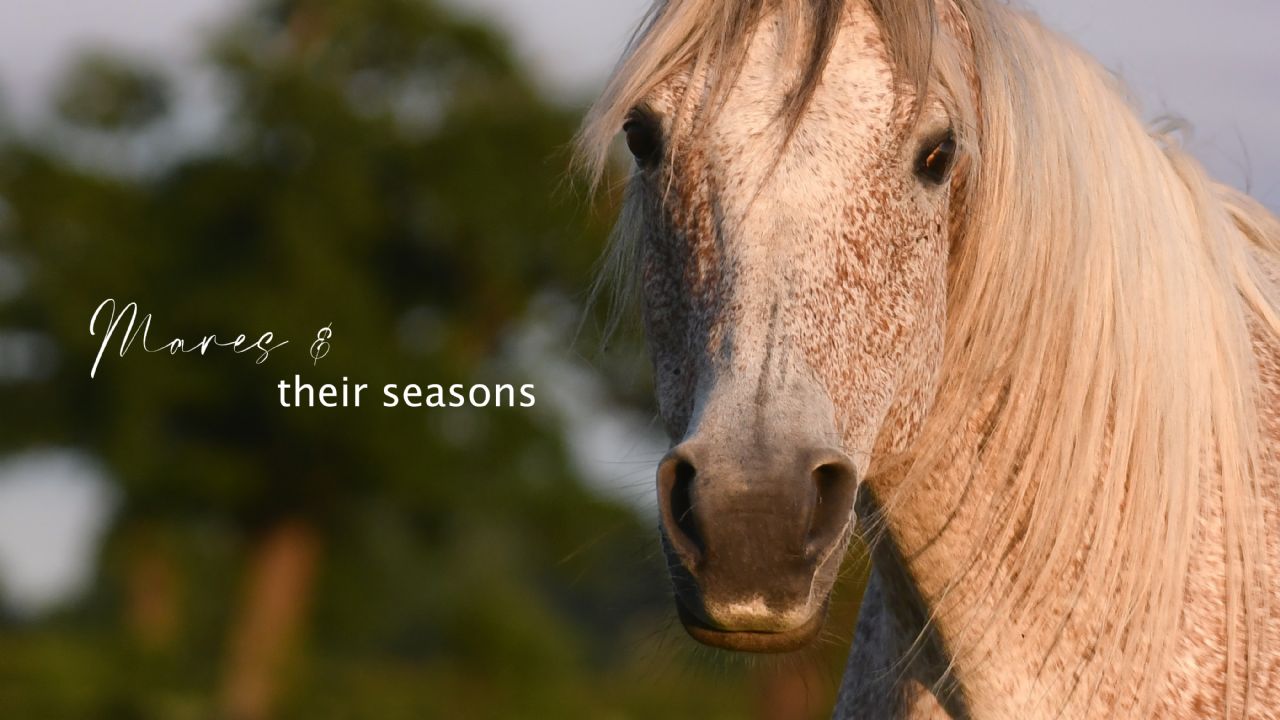Why do we recommend feeding horses from ground level?
How does the horse's jaw work? What happens if horses eat above ground level? Read the article to learn more...

Mares are in season for around 6 days every 3 weeks from spring until autumn. Some mares will cycle all year. When they are cycling, their hormones are fluctuating and, in many mares, will trigger changes in behaviour. This is perfectly natural and something we should try to understand, not criticise her for. Mares are as entire as stallions, the difference being that their drive is periodic, not constant.
For many mares, short days, cooler temperatures and less available food cause their cycle to stop, then warm weather, longer days and growing grass trigger the process to start up again, until either she becomes in foal or winter comes again. Veterinary intervention can also control her cycle.
Some mares find it hard to cope with their fluctuating hormones and can become tetchy when due in season, seem spaced out when in season and cross when they go off. They are all individuals! Some nutrients can help them cope with more equanimity to all these changes which is why we developed Lunar Eclipse. This does not in any way interfere with your mare’s normal cycle, but does help her to cope a little better. The first cycle or two in the spring can be longer and more testing that subsequent ones, so help may be needed just at this time. Others may need help throughout the spring and summer.
Lunar Eclipse can be fed as required, including if needs be, all the time. We recommend a feeding rate of 40g per day, per 100kg of ideal bodyweight, e.g. 200g per day for a 500kg mare. Mix with the usual feed. Reducing sugar and starch is also helpful for these mares.
Our Feed Line are always happy to make feeding suggestions and create bespoke feed plans. If you'd like to speak with the team, please contact us on 01728 604 008 or by email to by completing our advice request form.
How does the horse's jaw work? What happens if horses eat above ground level? Read the article to learn more...
We're thrilled to be adding an exiting new event to the calendar for 2026!
Horses’ teeth change throughout their lives - they are continually growing and continually wearing, as they chew and grind their grazing and forage.